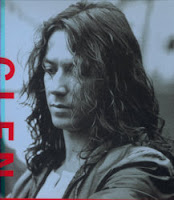 |
| Top scores are given away too easily for some things. Can you say "Strictly come Dancing"? |
The first ever in the GBR world seemed to spark a bit of debate, judging by the comments as well as the unprecedented spike in visitors the blog has had in the last few days. So I decided to take another unprecedented step - a mid week post (and not even a review).
I feel so rebellious.
I think it’s worthwhile though. It’s important to me that you don’t see the first ever 10GBR score as a sign that I’ve become soft. I’ve heard that blog readers can smell weakness. We're like bunnies that way.
I stick by the principle that a (for anything) is (and should remain) a rarely deserved feat. The world is littered with people giving ten out of ten for pretty much anything they like a lot. I’ve said it before and I say it again - ten out of ten means perfect. Not really really good, not I heart it, not OMG that’s brilliant, not most fave eva. Perfect. It means that you can’t conceive anything in that form being any better. It means no imperfections. None.
 |
| Fractions just confuse scoring. Who wants "nine and seven ninths out of ten"? Not me. |
This of course comes with some important disclaimers, (everything does). Firstly, an “out of ten” system leaves the judge with a little wiggle room. If something is better than a 9, and (like me) you’re averse to giving fractions out as scores, then the only other option is a 10. If you want to mark something out as better than anything you’ve ever given a 9 to, then it simply has to be a 10. Of course, I could change the system to be out of a hundred or out of a million to make it more precise, but that’d be silly. Who wants a book review score out of 989,432 out of 1,000,000?
Secondly, I want to address the point that the “perfect “, ten out of ten book needs to tick all the boxes. I simply don't think that's possible. A book can never be all things to all men (and women). It cannot be simultaneously the perfect thriller, the perfect piece of literary fiction, have endless depth, be flawlessly funny, be the darkest thing you’ve ever read, be… well, you get the idea. I reserve the right (respectfully, of course) to give 10GBR to books from more than one genre.
Some also feel that, rather than all the boxes being ticked, some very specific ones need to be ticked. Some feel that only a book with emotional depth can be perfect. Some feel that only a book with glorious philosophical points can be perfect. Some feel that only a book with matchless humour can be perfect. I, however, feel that a book of any flavour can be perfect.
That's just what I think. If you disagree, that's OK. I hope we don't fall out about it, cos I think you're cool.
Thirdly, I do not think a 10GBR book necessarily needs to be original. It needs to be a lot of things, but an entirely new thought? No. I’m quite happy to admit that a perfect book can come from a successful attempt to take a genre, or an idea, or a structure, or a premise, and use that initial spark to create something wonderful. It’s not in the original thought that 10GBR can be reached, but in what is achieved with it. I’ve read plenty of books that are fairly mind blowing with their originality. But unless that originality is backed up by a host of other things, then it’ll fall short.
And speaking of “other things”, I feel that a 10GBR book does need to display three important characteristics:
- It needs to change your life. Not for a few minutes, not for a few days, but genuinely change the way you look at the world around you. Forever
- It needs to make you love reading. Not just that book (though that should be pretty much a given), but it should give you a thirst for literature generally. It should make you fall in love with reading books (again). It should restore your faith in the power of the written word
- Perhaps most importantly, reading it should be right at the top of the most enjoyable things you have ever done. Enjoyment - that’s the key. Not necessarily something that made you really think, or that made you laugh, or that made you cry, or that made you scared, or that made you whatever - simply something that gave you a pretty unparalleled amount of enjoyment.
So that’s it, my thoughts on what it takes to get 10GBR . I think it’s a very strict criteria. And I also think that in my whole life I don’t expect to read more than a small handful of them.
And most importantly, I maintain that The World of Jeeves is one of them.
As always, let me know what you think about it. Feel free to disagree. These are books we're talking about here, so we're all going to think differently about them. And that's OK. I want to know what you think about them.
Vive le difference (as my wife would say).




